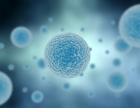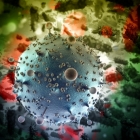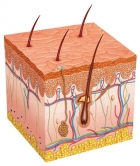Press monitoring
Japan poised to allow reprogrammed stem-cell therapy for damaged corneas
18.3.2019 | Press monitoring
A Japanese committee has provisionally approved the use of reprogrammed stem cells to treat diseased or damaged corneas. Researchers are now waiting for final approval from the health ministry to test the treatment in people with corneal blindness, which affects millions of people around the world. The cornea, a transparent layer that covers and...
Sugar set for energycane reinvention
15.3.2019 | Press monitoring
Gene-editing sugarcane for use in renewable energy and bio-plastics could help secure the industry's future. The University of Queensland's Professor Robert Henry said sugarcane's reinvention as an "energycane" crop could sustain the industry in the face of falling global demand for sugar. "The industry must think beyond just producing...
3-D-printed live cells convert glucose to ethanol, carbon dioxide to enhance catalytic efficiency
13.3.2019 | Press monitoring
Lawrence Livermore National Laboratory (LLNL) researchers have 3-D printed live cells that convert glucose to ethanol and carbon dioxide gas (CO2), a substance that resembles beer, demonstrating a technology that can lead to high biocatalytic efficiency. Bioprinting living mammalian cells into complex 3-D scaffolds has been widely studied and...
Polymer catheter coating kills infection-causing bacteria
11.3.2019 | Press monitoring
Hospital-acquired infections are a serious problem, and the most common type of such infections occurs when catheters are inserted into blood vessels. A new coating, however, shows promise for killing bacteria at insertion sites, keeping them from establishing biofilm colonies on the catheters. Developed at Rhode Island's Brown University, the...
Nanotechnology makes it possible for mice to see in infrared
8.3.2019 | Press monitoring
Mice with vision enhanced by nanotechnology were able to see infrared light as well as visible light, reports a study published February 28 in the journal Cell. A single injection of nanoparticles in the mice's eyes bestowed infrared vision for up to 10 weeks with minimal side effects, allowing them to see infrared light even during the day and...
Stem cell treatment puts HIV into long-term remission in landmark study
6.3.2019 | Press monitoring
An international team of scientists is reporting the "functional cure" of an HIV patient for only the second time ever. Known only as "the London patient," the man received a transplant of bone marrow stem cells from a donor that had a resistance to the virus. The patient has now been in remission for 18 months, with no sign of the HIV-1...
With nanotubes, genetic engineering in plants is easy-peasy
4.3.2019 | Press monitoring
Inserting or tweaking genes in plants is more art than science, but a new technique developed by University of California, Berkeley, scientists could make genetically engineering any type of plant – in particular, gene editing with CRISPR-Cas9 – simple and quick. To deliver a gene, the researchers graft it onto a carbon nanotube, which is tiny...
Scientists brew cannabis using hacked beer yeast
1.3.2019 | Press monitoring
The yeast that people have used for millennia to brew alcoholic drinks has now been engineered to produce cannabinoids – chemicals with medicinal and sometimes mind-altering properties found in cannabis. The feat, described on 27 February in Nature, turns a sugar in brewer’s yeast (Saccharomyces cerevisiae) called galactose into...
First CRISPR therapy administered in landmark human trial
27.2.2019 | Press monitoring
The first confirmed CRISPR gene editing clinical trial to take place outside of China is officially underway, with pharmaceutical companies CRISPR Therapeutics and Vertex revealing a human patient has been administered the experimental treatment targeting a rare blood disease. The gene-editing therapy, called CTX001, is designed to treat...
Skin wound regeneration with bioactive glass-gold nanoparticles ointment
25.2.2019 | Press monitoring
Healing is a complex process in adult skin impairments, requiring collaborative biochemical processes for onsite repair. Tissue engineering strategies for skin regeneration is a practical approach involving the use of bioactive biomaterials for assisted angiogenesis and faster revascularization. In a recent study, Sorin Marza and co-workers at...
































